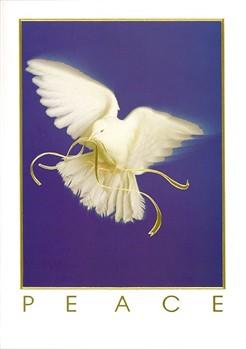I love Peace
Dec. 14 (Bloomberg) -- European Union leaders moved toward a showdown with Russia over influence in the Balkans by pledging to chart the way to statehood for Serbia's breakaway province of Kosovo.
EU governments will coordinate an independence declaration with the U.S. and plan to deploy European police to Kosovo, rejecting Russia's efforts to keep the province officially part of Serbia.
``Kosovo's independence is inevitable,'' French President Nicolas Sarkozy told a press conference after an EU summit in Brussels today. ``It's an issue for Europe to sort out.''
Fresh from signing a new treaty yesterday that will create the post of permanent EU president, the 27-nation bloc is making the peaceful settlement of Kosovo's status a test of its ambitions as a global power. Europe failed to prevent Yugoslavia's descent into civil war in the 1990s and relied on the U.S. to end the bloodshed.
Officially part of Serbia, the mostly ethnic Albanian province of 2 million has been under international control and policed by 16,000 North Atlantic Treaty Organization troops since the alliance's 1999 air offensive pushed out the Serb army.
Russia, then under President Boris Yeltsin, opposed NATO's war and sent troops to briefly seize Kosovo's main airport when the bombing stopped. Russian President Vladimir Putin backs continued Serb authority over Kosovo and has warned that a declaration of independence might fuel Russian separatist movements in Western-leaning former Soviet republics such as Georgia.
No `Russian Veto'
``We have a duty to deliver as far as Kosovo is concerned and we cannot be blocked by a kind of Russian veto,'' Luxembourg Prime Minister Jean-Claude Juncker said.
In Moscow, Russian Foreign Minister Sergei Lavrov said on state television that the EU is ``ignoring international law, including UN Security Council resolutions and ignoring the fact that Kosovo's population is not only Albanian but Serbian.''
The EU response, in a statement today, is that Kosovo's status ``does not set any precedent.''
Russia blocked Kosovo's independence in the United Nations Security Council, leading to four months of talks between Serbs and Kosovo Albanians that ended Dec. 10 without a negotiated settlement.
Anti-Serb Riots
That breakdown led NATO, which almost lost control of Kosovo in anti-Serb riots in 2004, to put additional troops on standby to quash any outbreak of violence. No incidents have been reported.
``The most important thing is for the EU to take the next steps with as much unity as possible,'' German Chancellor Angela Merkel said today. ``We want to find a reasonable solution but we also want to signal to Serbia that we need a stable Serbia.''
Serbia's path toward the EU has been slowed by the government's failure to arrest war-crimes suspects still at large from the 1990s, notably former Bosnian Serb General Ratko Mladic, charged with masterminding the 1995 Srebrenica massacre of more than 7,000 Bosnian Muslims.
Italy is pushing the EU to grant immediate ``candidate'' status to Serbia, to soften the blow of the loss of Kosovo. Most other governments, led by the Netherlands, first want to see evidence that Serbia is hunting down war criminals.
No EU incentives would lead Serbia to surrender Kosovo, Serbian Foreign Minister Vuk Jeremic said. ``Serbia will never trade Kosovo for speedier accession to the EU and these things are not negotiable,'' he said today in Belgrade.
Elections
To avoid baiting Serb nationalists, Sarkozy said the final break by Kosovo will have to wait until after Serbia's presidential election campaign is over in early February.
Kosovo has a 90 percent ethnic-Albanian majority, with an estimated 100,000 Serbs scattered along the province's northern and eastern borders with Serbia and in isolated pockets.
European recognition ``will be the solution in the end but we have to proceed carefully,'' European Parliament President Hans- Gert Poettering said.
Russia's call for an extension of the Serb-Kosovo talks was rejected Dec. 12 by the U.S., Britain and France. Backed by Russia, Serbia is offering home rule for Kosovo that stops short of legal independence.
``Serbia should understand it will not progress and persist as a colonial power,'' Albanian Prime Minister Sali Berisha said. ``Kosovo is a European matter and the EU is getting together on it.''
Kosovo Prime Minister-elect Hashim Thaci, who fought the Serbs in the 1990s as a guerrilla leader, promised to coordinate a legal split from Serbia with the U.S. and EU.
More EU Unity
So far, the EU has shown more unity on Kosovo than it did when Yugoslavia started to crumble in 1991. At the time, Germany rushed to recognize breakaway republics, splitting the bloc and leaving it indecisive when Serbia went to war against Croatia and Bosnia-Herzegovina.
Only one EU country, Cyprus, backed Russia's call for further Serb-Kosovo talks. The government in Nicosia fears that diplomatic recognition of Kosovo would bestow legitimacy on the separatist Turkish regime that has controlled the northern tier of Cyprus since 1974.
``We're not split, there is broad unity on this,'' Austrian Chancellor Alfred Gusenbauer said. ``This is the last unsolved status question of the 20th century, and we will solve this 20th century problem in the 21st.''
To contact the reporter on this story: James G. Neuger in Brussels at jneuger@bloomberg.net
15 December 2007
Subscribe to:
Post Comments (Atom)

No comments:
Post a Comment